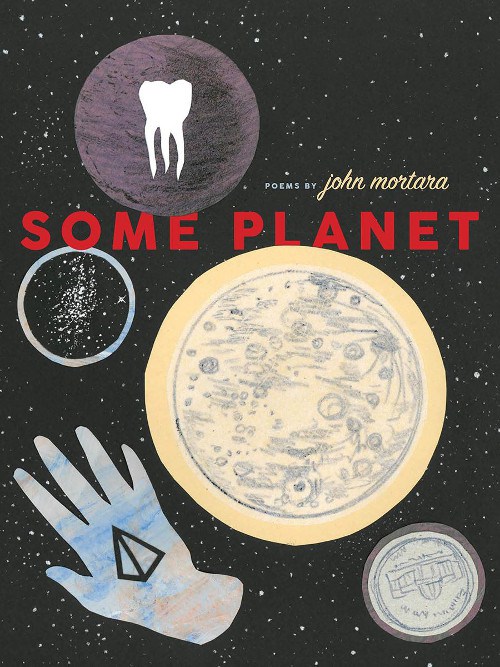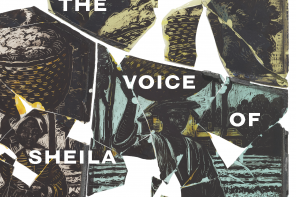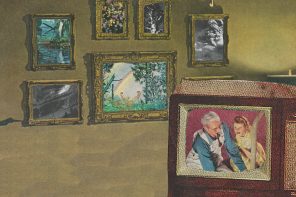I. jamie j. mortara has built their own planet. They’re tired of this one. Theirs is a planet seventy-three pages long, took years to make, and started on the back of their eyelids. The planet is comprised of experiments, artifacts-turned-literature, and colors (red, green, grey, and yellow). Their planet is strange, and a little familiar. Yesyes Books found mortara’s planet and kindly brought it beautifully into our solar system.
II. This is a very interior book. The rule is not to confuse the speaker with the writer, but in some planet, I just can’t separate them: everything mortara expresses seems to be what’s inside mortara. The poems speak from “i” and “you” interchangeably, but I found myself unworried about the distinction—mortara actually plants a clue early in the book, signaling that “you” is just “i” in hiding. From “you pick a road”:
i need/ you need / to know / you want a city
III. Many poems in this book take hilarious forms. There are seven poems that I call artifacts; one is a parse table, one is a paper fortune teller you can cut out and use, two are flow charts that fold out, one contains various tally boxes, one is a cypher using lines from the bible that the reader is tasked with finding and inserting, and one is an ideogram. These entertaining and mysterious pieces pique interest throughout the book, even if they aren’t the strongest poems in the collection.
a. As for the forms of the other thirty-seven poems: they’re equally diverse. Some make use of the prose line (where each stanza is one stand-alone sentence). Some let lines sprawl across the page. Some are prose-poems composed of paragraph chunks. A few even have traditional line and stanza breaks.
b. But the best form—the place where mortara shines—is this thing that I don’t know what it’s called, where line breaks are suggested by forward slashes, although the line doesn’t necessarily break. From “your house becomes an angry mouth”:
your house becomes an angry mouth / and
the front porch buckles into teeth / the basement
salivates like the nile / derek clutches to an empty
i. I’m not sure why I love this so much.
1. I think it’s that I’m forced to read the caesura multiple times per line, which allows me more freedom to decide where I pause.
2. Or, maybe it’s the way the lines seem to pile / on top of each other and even though / there are seemingly more breaks / the pace quickens / I speed through these whirlwind poems / about identity and depression / and binaries / and happenstance faster / than I would a standard prose-poem.
3. Additionally, the poem—thanks to its justified lines—retains this compact and solid shape, an even rectangle. Each looks like a beautiful object, even before you begin to read the words.
IV. there’re no capital letters on mortara’s planet.
V. What some planet is about: gender identity; bicycles as vehicles to heaven; (the myth of) where the body stops and the soul begins; (the myth of) where earth stops and outer space begins. some planet not only describes mortara’s world, but consistently asks: what happens when this planet I’ve made bumps up against planet earth? Where does my reality end and this other one begin? A few important lines that tie the book together thematically:
a. from “experiment”:
now invent a personality that is so much shinier than your own
maybe you can do this out of boredom or you can do it out of fear
b. from “my heart is an alien spacecraft”:
my heart is not interested in your feeble planet
my heart is keeping the world at arm’s length.
c. from “Q & A”:
what do you know about my body that i don’t already / how can you reteach me
d. from “after november in a slow fade”:
i am just furiously reclaiming my
body with as much ink as I can afford to buy
ii. Actually, most of the lines in this book tie together very intentionally, forming a web on this planet mortara has created “out of boredom or . . . out of fear.” That’s what makes the book so fulfilling to read: it isn’t merely a collection of poems published over the last few years, but rather, a family of poems that work together as one weird whole. This book, on the surface, is all-over-the-place and wildly random. Yet on a read from front to back, by about page 34 (“I am trying to tell you”) everything starts to snap into place: this is an identity constructed from scratch, an experiment, a test, a life-and-death game of remaking self. To go even further: many of these poems would feel too random—as if they were floating freely in the wide contextlessness of outer space—if I were to read them discretely, without them in orbit together. Each piece, each standout line, is a part of the whole, the aesthetic, the sum of mortara’s some planet.
VI. Many of the tensions in the book stem from the damning boundaries formed by everyday binaries. mortara seems to mount a resistance to them. The first poem begins as a tongue-in-cheek defense of binaries, but ends with a brilliant line that collapses the coin-toss dichotomies around which we structure our daily lives. From “experiment” (page 13):
george washington tells me i’m beautiful and the eagle says bless your heart
mortara joyfully states that—heads or tails, stay or go, love or not—it doesn’t frickin matter either way. That’s what this book is about.
a. But then again, I wonder if this book might really be about having as much fun as you possibly can on a planet you don’t really like that much. mortara’s advice: make your own. What makes this book special is that it’s about more than what mortara’s planet looks and sounds like; it’s about how reconciling their planet with the planet can be frustrating and depressing and vital for survival. Line after line, it’s also about how we might begin to make our own planets. From the book’s final poem, “how to start”:
all you can allow yourself is the pushing of your eyelids into your eyes into your
sockets and watching the yellow-red-green-grey float like galaxies and maybe
that is how you start
Tyler Barton is the fiction editor of Third Point Press and an MFA candidate at Minnesota State University, Mankato. His published fiction can be found at tsbarton.com and his jokes can be found @goftyler.




